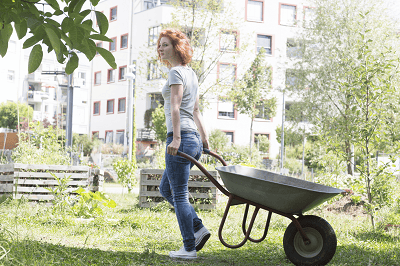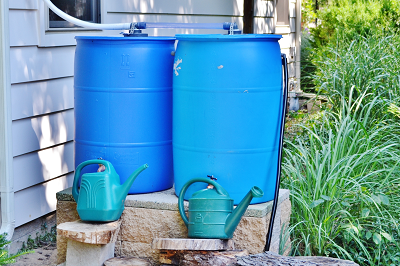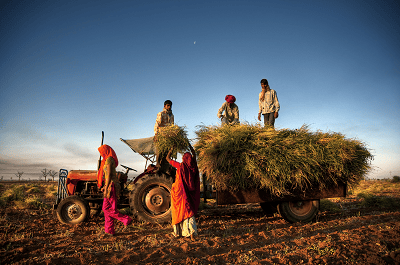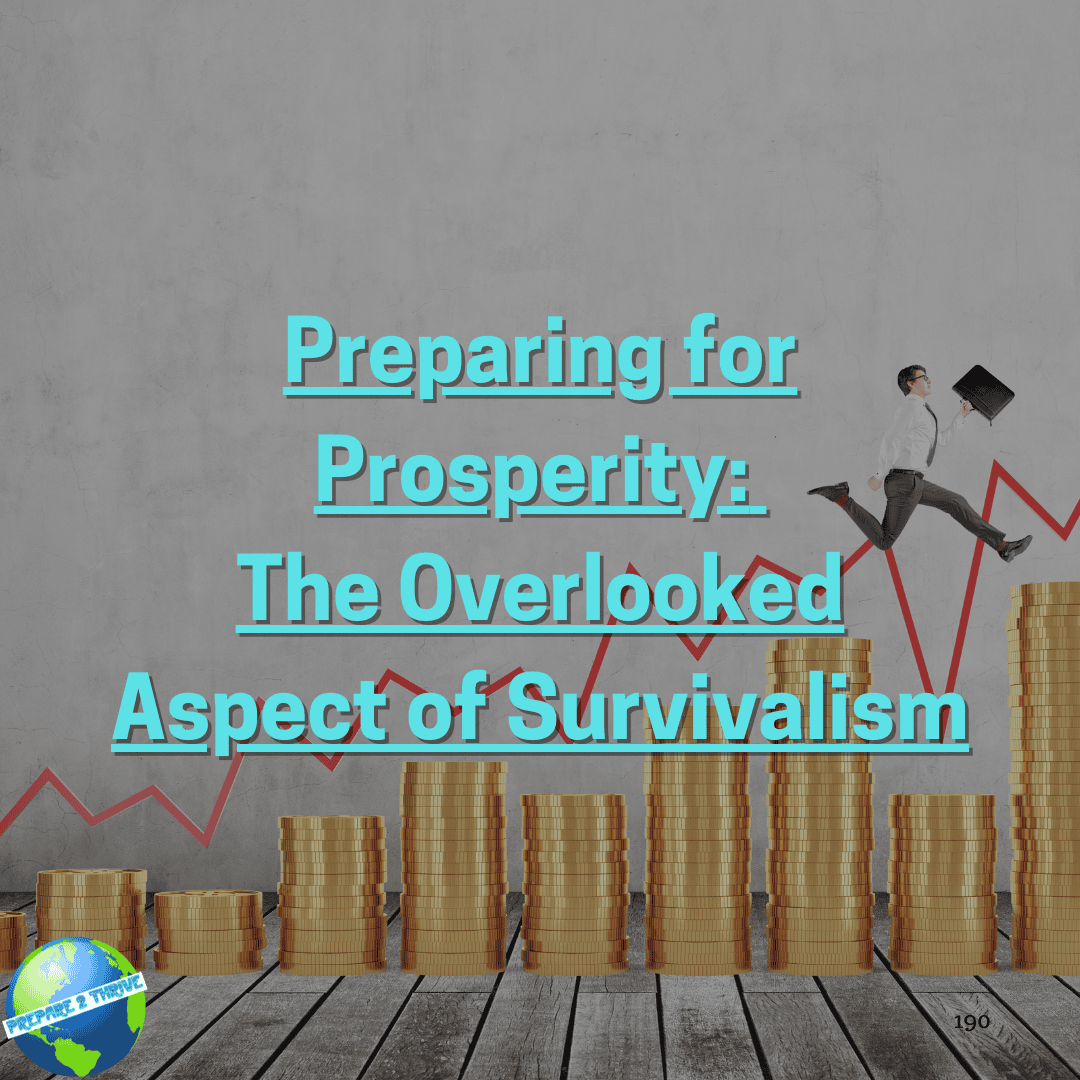In the world of prepping and survivalism, much emphasis is placed on preparing for worst-case scenarios and doomsday scenarios. However, what if society doesn't collapse, and things actually improve over the years? In this article, we explore the often overlooked aspect of survivalism - preparing for prosperity. Specifically, we delve into the potential challenges and opportunities that preppers might face if the world continues on its current level or experiences positive developments.
-
Adapting Survival Skills to Everyday Life: Embracing Self-Sufficiency for a Thriving Future
 Preppers, often associated with an intense focus on disaster scenarios, possess a unique skill set that extends beyond the realm of doomsday preparations. These survival skills, cultivated with the intent of navigating crises, can seamlessly integrate into everyday life, fostering self-sufficiency and resilience in a world that is continually evolving. By shifting the narrative from solely preparing for catastrophic events to embracing a lifestyle of preparedness, individuals can not only navigate potential challenges but also contribute positively to their well-being and independence.
Preppers, often associated with an intense focus on disaster scenarios, possess a unique skill set that extends beyond the realm of doomsday preparations. These survival skills, cultivated with the intent of navigating crises, can seamlessly integrate into everyday life, fostering self-sufficiency and resilience in a world that is continually evolving. By shifting the narrative from solely preparing for catastrophic events to embracing a lifestyle of preparedness, individuals can not only navigate potential challenges but also contribute positively to their well-being and independence.Growing Your Own Food: One of the fundamental survival skills often emphasized in prepping is the ability to grow food. While initially considered a means of sustaining oneself during a crisis, cultivating a garden or practicing urban farming can evolve into a sustainable and rewarding lifestyle choice. Preppers can explore organic gardening, permaculture, and aquaponics, not only ensuring a reliable source of fresh produce but also promoting environmental sustainability and reducing reliance on mass-produced goods.
Mastering Basic First Aid: Beyond tending to injuries in survival situations, the knowledge of basic first aid is invaluable in everyday life. Preppers, well-versed in medical preparedness, can actively contribute to the well-being of their communities. From administering CPR to handling minor injuries, these skills become an asset in emergencies but also empower individuals to address health concerns in their day-to-day lives. This proactive approach to health can lead to a healthier and more resilient community overall.
Water Purification and Conservation: The prepper's emphasis on water purification is not exclusive to doomsday scenarios; it extends to fostering responsible water usage in daily life. By adopting water conservation practices and implementing efficient water purification methods, individuals can contribute to sustainable resource management. These habits not only ensure access to clean water during emergencies but also promote environmental stewardship in the face of growing water scarcity concerns.
Navigation and Outdoor Skills: Preppers often possess outdoor survival skills, including navigation, map reading, and camping expertise. Integrating these skills into recreational activities encourages a connection with nature and fosters a sense of adventure. Whether it's a weekend hike or a camping trip, these skills enhance personal well-being, mental resilience, and the ability to adapt to changing environments.
In essence, the adaptability of survival skills extends beyond mere contingency planning. By incorporating these skills into everyday life, preppers can actively contribute to a lifestyle centered on self-sufficiency, environmental consciousness, and overall resilience. The transition from preparing for worst-case scenarios to embracing a holistic approach to preparedness not only enhances personal independence but also positions individuals as proactive contributors to a thriving and rapidly changing world.
-
Investing in Sustainable Living: Navigating Prepper Resources toward a Greener Tomorrow
 The traditional image of preppers stockpiling resources in anticipation of doomsday scenarios is evolving into a more forward-thinking approach. As the world continues to advance, preppers are recognizing the importance of transitioning from mere resource accumulation to investing in sustainable living practices. This paradigm shift involves redirecting preparedness efforts towards eco-friendly technologies, renewable energy sources, and water conservation initiatives that not only fortify individual resilience but also contribute significantly to a more sustainable and environmentally conscious future.
The traditional image of preppers stockpiling resources in anticipation of doomsday scenarios is evolving into a more forward-thinking approach. As the world continues to advance, preppers are recognizing the importance of transitioning from mere resource accumulation to investing in sustainable living practices. This paradigm shift involves redirecting preparedness efforts towards eco-friendly technologies, renewable energy sources, and water conservation initiatives that not only fortify individual resilience but also contribute significantly to a more sustainable and environmentally conscious future.Transitioning to Renewable Energy Sources: One key aspect of sustainable living is the incorporation of renewable energy sources. Preppers, who often prioritize self-sufficiency, can invest in solar panels, wind turbines, and other renewable energy technologies. By harnessing the power of nature, individuals can not only secure a reliable energy source for their survival retreats but also actively contribute to reducing carbon footprints and dependence on non-renewable energy sources.
Water Conservation Initiatives: Preppers are well-aware of the critical importance of water in survival situations. Transitioning this awareness to everyday life involves investing in water conservation initiatives. Rainwater harvesting systems, water-efficient appliances, and the reclamation of greywater for non-potable uses are practical approaches that not only contribute to individual self-sufficiency but also address broader environmental concerns related to water scarcity.
Eco-Friendly Technologies: As technology advances, preppers can redirect their focus toward incorporating eco-friendly technologies into their lifestyles. This might involve investing in energy-efficient appliances, smart home systems that optimize resource usage, and sustainable building materials. These choices not only enhance the efficiency of daily living but also demonstrate a commitment to a sustainable future.
Community-based Sustainability Projects: Preppers, often portrayed as individualists, can extend their preparedness efforts to the community level. Investing in community gardens, renewable energy cooperatives, and local sustainability projects fosters a sense of collective resilience. By pooling resources and knowledge, preppers can actively contribute to creating sustainable, resilient communities that thrive in the face of both challenges and opportunities.
Educating and Advocating for Sustainability: Beyond personal investments, preppers can use their knowledge and influence to advocate for sustainability within their communities. This might involve conducting workshops on eco-friendly practices, supporting local environmental initiatives, and actively participating in discussions about sustainable living. By becoming advocates for positive change, preppers can play a vital role in shaping a greener and more sustainable future.
The evolution of prepper mindset towards sustainable living represents a proactive response to the changing dynamics of the world. By redirecting resources and focus towards renewable energy, water conservation, and eco-friendly technologies, preppers not only fortify their own resilience but also contribute meaningfully to the broader goal of building a sustainable and environmentally conscious future for generations to come.
-
Community Building and Networking: Fortifying Resilience through Connection
 In the world of prepping, the notion of preparing for isolation is gradually giving way to a more comprehensive strategy - one that emphasizes the importance of community building and networking. While self-sufficiency remains a key goal, recognizing the strength in numbers and the power of a supportive community has become a cornerstone of modern survivalism. Shifting the focus from solitary preparations to collaborative efforts, preppers are now actively engaged in networking with like-minded individuals, forming alliances, and creating a robust network of resources that proves beneficial not only in times of need but also in periods of growth and prosperity.
In the world of prepping, the notion of preparing for isolation is gradually giving way to a more comprehensive strategy - one that emphasizes the importance of community building and networking. While self-sufficiency remains a key goal, recognizing the strength in numbers and the power of a supportive community has become a cornerstone of modern survivalism. Shifting the focus from solitary preparations to collaborative efforts, preppers are now actively engaged in networking with like-minded individuals, forming alliances, and creating a robust network of resources that proves beneficial not only in times of need but also in periods of growth and prosperity.The Power of Like-Minded Networks: Preppers, bound by a common commitment to preparedness, are increasingly recognizing the strength that comes from connecting with like-minded individuals. Building relationships with others who share similar values and goals not only provides a sense of community but also creates a network where knowledge, skills, and resources can be shared. This collaborative approach fosters a collective resilience that extends far beyond what an individual might achieve in isolation.
Forming Alliances for Mutual Support: Alliances among preppers offer a strategic advantage in times of crisis, but they also serve as a foundation for growth during periods of stability. By forming alliances, preppers can pool resources, share expertise, and create a supportive environment that thrives on mutual assistance. These alliances not only enhance individual preparedness but contribute to the development of resilient communities capable of weathering various challenges.
Resource Sharing for Community Resilience: A crucial aspect of community building involves the creation of resource-sharing networks. This can include the sharing of surplus food, water, medical supplies, and other essentials. By establishing a system of reciprocity within the community, preppers not only ensure a more comprehensive safety net in times of need but also contribute to the overall well-being and prosperity of the community during periods of stability.
Skill Exchange and Education: Community building goes beyond physical resources; it extends to the exchange of skills and knowledge. Preppers can organize skill-sharing sessions, workshops, and training programs within their communities. This not only enhances the collective skill set of the group but also fosters a culture of continuous learning and adaptability that is invaluable in both challenging and prosperous times.
Contribution to Local Prosperity: Engaging with the local community is not only about preparedness; it's also about contributing to local prosperity. Preppers, by actively participating in community initiatives, supporting local businesses, and volunteering for community projects, play a vital role in creating a more resilient and thriving environment. This approach not only benefits the community at large but also enhances the overall preparedness of the prepper network.
The shift from preparing for isolation to community building and networking represents a holistic approach to survivalism. By recognizing the strength that comes from collaboration, preppers are not only fortifying their ability to navigate crises but also actively contributing to the development of resilient, supportive communities that can thrive in times of both adversity and prosperity.
-
Economic Preparedness: Beyond Precious Metals - Investing for Resilience and Local Prosperity
 In the realm of prepping, economic preparedness has often been synonymous with hoarding precious metals as a hedge against economic uncertainty. However, a more nuanced and forward-thinking approach to financial readiness is emerging among preppers-one that extends beyond stockpiling and focuses on investments that not only endure economic shifts but thrive in a growing economy. This involves diversifying financial portfolios, engaging in activities that contribute positively to local economies, and embracing a more proactive stance towards economic preparedness.
In the realm of prepping, economic preparedness has often been synonymous with hoarding precious metals as a hedge against economic uncertainty. However, a more nuanced and forward-thinking approach to financial readiness is emerging among preppers-one that extends beyond stockpiling and focuses on investments that not only endure economic shifts but thrive in a growing economy. This involves diversifying financial portfolios, engaging in activities that contribute positively to local economies, and embracing a more proactive stance towards economic preparedness.Diversifying Financial Portfolios: While precious metals may retain their value during economic downturns, preppers are increasingly recognizing the importance of diversification in their financial portfolios. Beyond gold and silver, investments in diverse assets such as real estate, stocks, and bonds can offer a more resilient approach to economic preparedness. Diversification not only safeguards wealth but also positions preppers to capitalize on opportunities that arise in a flourishing economy.
Investing in Sustainable Ventures: Preppers can take their economic preparedness a step further by investing in ventures that align with their values and contribute positively to both the environment and the local community. This might involve supporting sustainable agriculture, renewable energy projects, or eco-friendly businesses. By actively investing in enterprises that prioritize long-term sustainability, preppers not only secure their financial well-being but also play a role in fostering local economic growth.
Entrepreneurship and Local Business Initiatives: Taking a hands-on approach to economic preparedness, preppers can explore entrepreneurship and local business initiatives. Starting small businesses, contributing to local markets, and participating in community-driven enterprises not only strengthen individual financial positions but also enrich local economies. This proactive engagement serves as a dual-purpose strategy, enhancing both personal resilience and community prosperity.
Skills-Based Income Generation: Beyond traditional employment, preppers can focus on developing skills that have market value and can generate income. Whether it's through consulting, freelancing, or offering specialized services, preppers can diversify their income streams. This approach not only enhances economic preparedness on a personal level but also contributes to the creation of a more resilient local economy.
Financial Education and Literacy Initiatives: Empowering the community through financial education and literacy initiatives is a key aspect of economic preparedness. Preppers can share their knowledge about budgeting, investment strategies, and financial planning with their communities. By fostering financial literacy, preppers contribute to a more informed and economically resilient society.
Economic preparedness for preppers is evolving from a focus on accumulating precious metals to a more dynamic and proactive approach. By diversifying financial portfolios, investing in sustainable ventures, engaging in local business initiatives, and promoting financial literacy, preppers not only fortify their personal resilience but actively contribute to the economic well-being of their communities. This shift represents a strategic and forward-thinking approach to economic preparedness in an ever-changing world.
-
Education and Skill Development: Nurturing Resilience through Lifelong Learning
 In the ever-evolving landscape of preparedness, the prepper's mindset is transcending the traditional focus on physical survival skills. A new paradigm is emerging-one that underscores the importance of continuous learning and skill development as integral components of preparedness. Beyond mastering survival techniques, preppers are channeling their mindset of readiness into acquiring skills that hold significant value in a thriving society. This shift towards education and skill development not only enhances individual resilience but also positions preppers as adaptable contributors to the broader social fabric.
In the ever-evolving landscape of preparedness, the prepper's mindset is transcending the traditional focus on physical survival skills. A new paradigm is emerging-one that underscores the importance of continuous learning and skill development as integral components of preparedness. Beyond mastering survival techniques, preppers are channeling their mindset of readiness into acquiring skills that hold significant value in a thriving society. This shift towards education and skill development not only enhances individual resilience but also positions preppers as adaptable contributors to the broader social fabric.Adapting to Technological Advances: As technology becomes increasingly integrated into every aspect of daily life, preppers recognize the importance of staying technologically literate. From mastering digital communication tools to understanding automation and artificial intelligence, acquiring technological skills ensures preppers remain adept in an ever-changing landscape. This adaptability not only enhances personal preparedness but contributes to a technologically savvy and resilient community.
Effective Communication Skills: In a world where effective communication is paramount, preppers are placing emphasis on honing their communication skills. Whether through written, verbal, or digital channels, clear and concise communication is vital not only in times of crisis but also in building strong community connections and collaborating on initiatives. Preppers are realizing that the ability to convey information effectively fosters a sense of unity and ensures the smooth exchange of ideas within their communities.
Entrepreneurship and Self-Sufficiency: Preppers are embracing an entrepreneurial spirit, recognizing that self-sufficiency extends beyond survivalist practices. By developing entrepreneurial skills, individuals can create opportunities for themselves and contribute to economic growth within their communities. Whether it's starting a small business or developing innovative solutions, preppers are positioning themselves as proactive contributors to a thriving society.
Healthcare and First Aid Training: While basic first aid has always been a cornerstone of prepper education, there is a growing emphasis on expanding healthcare skills. Preppers are pursuing more advanced first aid training, understanding the value of being able to provide medical assistance beyond immediate life-saving measures. This enhanced medical knowledge not only contributes to personal resilience but can also make a significant difference in community well-being.
Sustainable Living and Environmental Stewardship: Education in sustainable practices and environmental stewardship is becoming a priority for preppers. Understanding and implementing eco-friendly practices, such as permaculture, waste reduction, and conservation, align with the values of a resilient and forward-thinking community. By becoming stewards of the environment, preppers actively contribute to the well-being of the planet and the sustainability of resources.
Education and skill development represent a natural evolution in the prepper's journey towards resilience. By embracing a mindset of continuous learning, preppers not only enhance their personal preparedness but actively contribute to the strength and adaptability of their communities. This commitment to education is a testament to the prepper's ability to thrive, not just survive, in a rapidly changing and dynamic world.
-
Health and Wellness in Times of Peace: Leveraging Preparedness for a Healthier Tomorrow
 While the prepper ethos has traditionally centered around physical fitness for survival scenarios, a progressive shift is occurring-a move towards embracing health and wellness not just in times of crisis but as a fundamental lifestyle choice during periods of peace. Recognizing the value of well-rounded resilience, preppers are redirecting their focus to lead healthier lives and proactively address common lifestyle-related health issues. This evolution in mindset positions preppers as not only survivors but as individuals who actively promote holistic well-being.
While the prepper ethos has traditionally centered around physical fitness for survival scenarios, a progressive shift is occurring-a move towards embracing health and wellness not just in times of crisis but as a fundamental lifestyle choice during periods of peace. Recognizing the value of well-rounded resilience, preppers are redirecting their focus to lead healthier lives and proactively address common lifestyle-related health issues. This evolution in mindset positions preppers as not only survivors but as individuals who actively promote holistic well-being.Physical Fitness as a Lifestyle: Preppers, who have long emphasized physical fitness as a key survival skill, are extending this commitment into daily life. Engaging in regular exercise, whether through outdoor activities, gym workouts, or fitness routines, becomes a cornerstone of personal well-being. By adopting a fitness-focused lifestyle, preppers not only enhance their physical resilience but also reduce the risk of lifestyle-related health issues such as obesity, heart disease, and diabetes.
Nutrition and Sustainable Eating Habits: The prepper's mindset extends to nutrition, with an emphasis on sustainable eating habits. Growing their own food, embracing organic and locally sourced produce, and exploring sustainable food practices become integral components of a prepper's lifestyle. By prioritizing nutritious and balanced diets, preppers not only fortify their bodies but actively contribute to community well-being and local agriculture.
Mental and Emotional Resilience: Beyond physical health, preppers are recognizing the importance of mental and emotional well-being. Incorporating stress management techniques, mindfulness practices, and fostering emotional resilience contribute to a holistic approach to health. By proactively addressing mental health, preppers not only strengthen their ability to navigate challenges but also create a supportive community culture that values emotional well-being.
Skill Integration into Daily Life: Preppers can leverage their survival skills to enhance their overall health. For instance, the knowledge of herbal medicine, first aid, and alternative healing methods acquired in the context of survivalism can be applied to everyday health challenges. By integrating these skills into daily life, preppers become proactive in addressing minor health issues and promoting preventive care.
Community Health Initiatives: Health and wellness extend beyond the individual to the community level. Preppers are actively engaged in organizing community health initiatives, workshops, and events that promote well-being. This collective approach not only fosters a sense of unity within the community but also contributes to a healthier and more resilient society.
The evolving narrative of prepper health and wellness is a testament to a broader commitment to resilience. By shifting the conversation from survival fitness to a holistic approach, preppers are not just preparing for a crisis; they are actively fostering healthier lives and communities. This transformation positions preppers as advocates for well-being, capable of thriving in times of peace while maintaining the adaptability and resilience traditionally associated with their ethos.
-
Cultural Integration: Navigating the Transition from Preparedness to Prosperity
 As preppers shift their focus towards a future that embraces prosperity rather than impending collapse, a critical aspect of their journey is the process of cultural integration. This phase involves reintegrating into a society that has not faced a major collapse, presenting both challenges and benefits. Understanding and addressing potential cultural differences, as well as leveraging the unique skills and perspectives acquired through preparedness, enables preppers to contribute positively to their communities and actively shape a harmonious and resilient future.
As preppers shift their focus towards a future that embraces prosperity rather than impending collapse, a critical aspect of their journey is the process of cultural integration. This phase involves reintegrating into a society that has not faced a major collapse, presenting both challenges and benefits. Understanding and addressing potential cultural differences, as well as leveraging the unique skills and perspectives acquired through preparedness, enables preppers to contribute positively to their communities and actively shape a harmonious and resilient future.Challenges of Reintegration: The transition from a prepper mindset to cultural integration poses challenges rooted in the potential divergence of values and priorities. Preppers, who have honed self-sufficiency and crisis readiness, may find it challenging to align with a society focused on stability and routine. There could be a gap in understanding and expectations, potentially leading to feelings of isolation or the need for adaptation.
Benefits of Preparedness: On the flip side, the journey of preparedness equips individuals with a unique skill set that can be invaluable in a thriving society. Skills such as resilience, adaptability, and resourcefulness cultivated in the prepper community become assets in a broader context. The ability to navigate uncertainty, solve problems creatively, and foster self-sufficiency can contribute positively to community resilience.
Cultural Adaptations: Successful cultural integration involves recognizing and embracing cultural adaptations. Preppers can proactively engage with their communities, seeking to understand and appreciate the values and norms that shape their surroundings. By demonstrating a willingness to adapt, preppers can bridge potential cultural gaps and foster a sense of unity within the community.
Community Engagement and Collaboration: Preppers can leverage their unique skills and experiences to actively engage with their communities. Offering workshops on emergency preparedness, sustainable living practices, and self-sufficiency not only imparts valuable knowledge but also fosters a sense of community empowerment. By collaborating on local initiatives and projects, preppers become integral contributors to community development.
Promoting a Culture of Resilience: Preppers can play a vital role in instilling a culture of resilience within their communities. By sharing their insights on risk management, crisis preparedness, and adaptive thinking, preppers contribute to a community ethos that values preparedness without dwelling on fear. This positive perspective promotes a sense of empowerment and readiness without the need for a looming threat.
Celebrating Diversity and Shared Values: Cultural integration thrives on the celebration of diversity and the identification of shared values. Preppers can actively participate in community events, fostering connections that go beyond survivalist principles. By embracing the richness of cultural diversity, preppers contribute to a vibrant and cohesive community fabric.
The journey from preparedness to prosperity involves not just personal adaptation but active participation in cultural integration. By addressing challenges, leveraging their unique skill set, and contributing positively to their communities, preppers can shape a future that values resilience, unity, and a collective commitment to a thriving society.
-
Environmental Stewardship: Preppers as Guardians of a Sustainable Future
 As preppers transition from a focus on survivalism to a broader vision of prosperity, an essential aspect emerges-the role of preppers as environmental stewards. Encouraging a commitment to sustainable practices, preppers can play a pivotal role in environmental conservation, contributing not only to their immediate well-being but also to the creation of a healthier planet for future generations.
As preppers transition from a focus on survivalism to a broader vision of prosperity, an essential aspect emerges-the role of preppers as environmental stewards. Encouraging a commitment to sustainable practices, preppers can play a pivotal role in environmental conservation, contributing not only to their immediate well-being but also to the creation of a healthier planet for future generations.Sustainable Living Practices: Preppers, already adept at self-sufficiency, can extend their practices to embrace sustainability. This includes reducing waste, conserving water, and adopting eco-friendly technologies. By incorporating sustainable living practices into their daily routines, preppers minimize their environmental footprint and demonstrate a commitment to responsible resource management.
Renewable Energy Adoption: The transition to renewable energy sources aligns seamlessly with the prepper ethos of self-sufficiency. Investing in solar panels, wind turbines, or other clean energy technologies not only ensures a reliable energy source during emergencies but actively contributes to reducing reliance on fossil fuels. This shift towards renewable energy promotes a more sustainable and eco-friendly lifestyle.
Permaculture and Sustainable Agriculture: Preppers can further their environmental stewardship by embracing permaculture and sustainable agriculture. Creating resilient food systems through practices like regenerative farming, agroforestry, and soil conservation not only ensures a local and sustainable food source but also nurtures the health of the land and ecosystems.
Reducing Single-Use Plastics: The conscious effort to reduce single-use plastics is a tangible way for preppers to contribute to environmental conservation. By adopting reusable alternatives and promoting waste reduction within their communities, preppers actively participate in a global movement to minimize plastic pollution and protect the health of oceans and ecosystems.
Community Environmental Initiatives: Preppers can leverage their collective knowledge and skills to initiate community-based environmental projects. Participating in tree planting events, organizing clean-up campaigns, and advocating for sustainable practices within the community contribute to a shared commitment to environmental conservation. These initiatives not only enhance local ecosystems but also foster a sense of community responsibility.
Educational Outreach on Environmental Issues: Empowering the community with knowledge about environmental issues is a crucial aspect of preppers' environmental stewardship. By conducting workshops, seminars, and educational programs, preppers can raise awareness about climate change, biodiversity loss, and the importance of sustainable living. Education becomes a catalyst for collective action and environmental consciousness.
Promoting Biodiversity and Conservation: Preppers can actively contribute to biodiversity conservation by creating and maintaining green spaces, supporting local conservation efforts, and advocating for policies that protect ecosystems. By understanding the interconnectedness of all living things, preppers play a vital role in preserving biodiversity for the benefit of current and future generations.
Environmental stewardship is a natural progression for preppers embracing a vision of prosperity. By integrating sustainable practices, adopting clean energy solutions, and actively participating in community-based environmental initiatives, preppers become guardians of a healthier planet. This commitment goes beyond preparedness-it is a legacy of responsibility, ensuring a sustainable and resilient Earth for the generations to come.
Conclusion: Navigating Towards Prosperity - A Pragmatic Evolution in Survivalism
In the ever-evolving landscape of preparedness, the shift from solely anticipating disaster to preparing for prosperity marks a transformative chapter for preppers. This shift is not merely an optimistic outlook; it's a pragmatic approach that underscores the importance of adapting to changing circumstances. By embracing the potential for positive growth, preppers find themselves not only as survivors of disaster scenarios but as dynamic contributors to a thriving and resilient future.
The journey from stockpiling resources for worst-case scenarios to investing in sustainable living practices, fostering community connections, and actively promoting health and environmental stewardship represents a strategic evolution in the prepper ethos. This evolution is grounded in the recognition that resilience is not solely about navigating crises but also about actively participating in the continuous growth and well-being of individuals, communities, and the planet.
By diversifying financial portfolios, engaging in sustainable ventures, and promoting a culture of resilience within communities, preppers position themselves as proactive contributors to a positive and flourishing future. The knowledge acquired through survivalism becomes a multifaceted toolkit, adaptable to the challenges and opportunities presented in a world that is continually changing.
Preparing for prosperity is not a departure from the core principles of prepping; rather, it is a natural progression that acknowledges the broader spectrum of challenges and the potential for positive development. As preppers integrate their skills, mindset, and resources into the fabric of a thriving society, they exemplify a resilience that extends beyond survival scenarios.
In this new era of preparedness, preppers become architects of their own destiny, actively shaping a future that values self-sufficiency, community engagement, and environmental consciousness. It's not just about weathering storms; it's about building a resilient and prosperous world-one where the lessons of preparedness contribute to a legacy of adaptability, resourcefulness, and a commitment to a thriving future for all.
